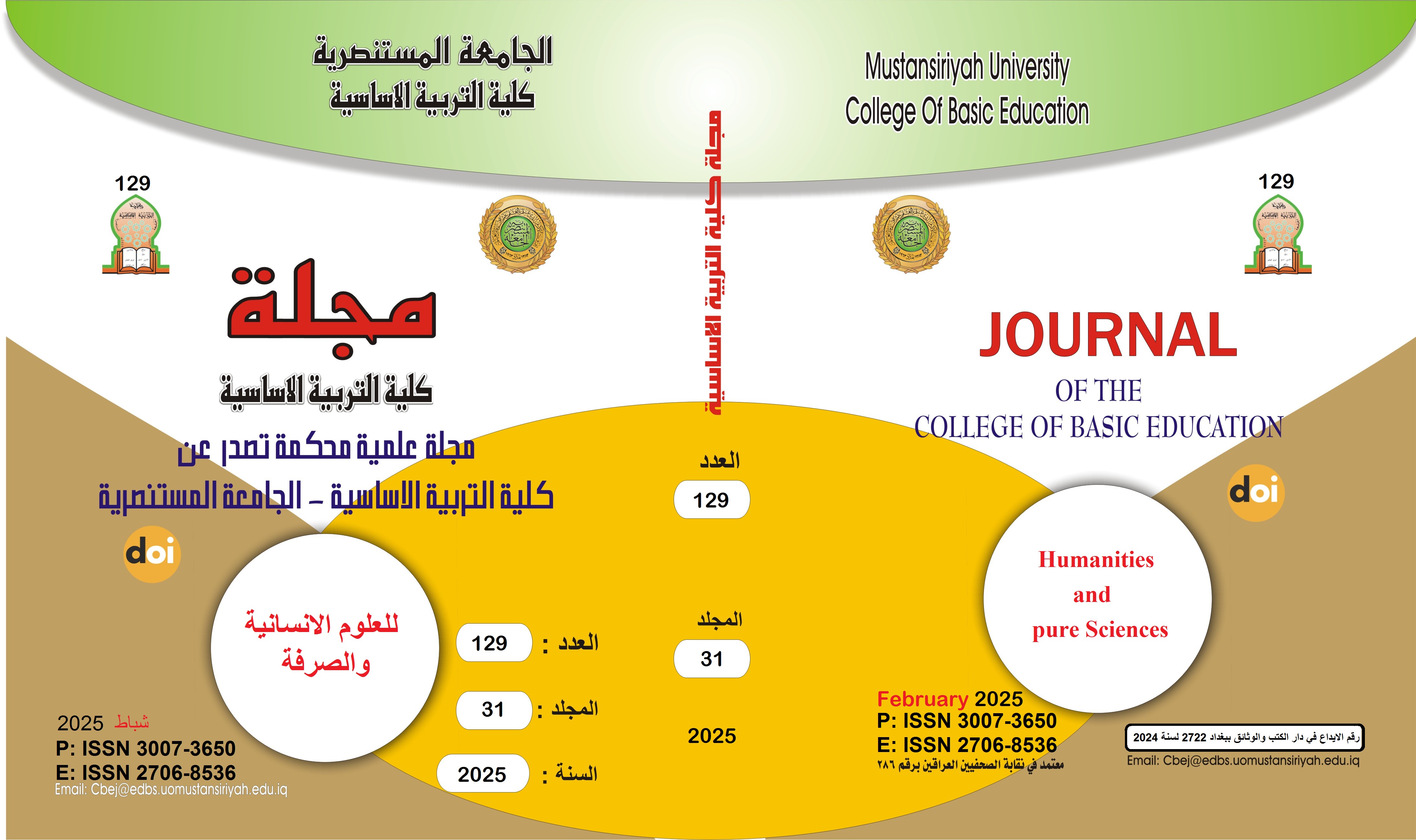The Effect Of An Educational Program On Developing Saving Skills In Kindergarten Children
Main Article Content
Abstract
The rapid progress of the industrial and technological revolution has led to a series of changes in the consumer, saving and economic culture in advanced and developing societies, especially since the people of developing countries are exposed to the global saving and spending patterns of the people of developed countries, and feel anxious and unsatisfied with their needs as a result of the increasing desire to consume and the lack of tendency to save, and for this reason the difficulties of saving and the shortage of savings of developing countries have arisen (Badir, 10:2011), and the development of modern life and the abundance of its requirements have led to the emergence of new consumption patterns with an increase in the cost of living, The increase in the burdens placed on parents to provide for the family, and children are part of the family and society, and are one of the most important groups because they need education, upbringing and the satisfaction of needs (Abdul Fattah, 4:2005), as the study (Carneiro and Ginja, 2014) confirmed that most parents and teachers may neglect teaching their children these values from the early stages of their lives, believing that they are still young, so there is no need to teach them these values. The study also added that these wrong ideas usually develop in the child a lack of a sense of responsibility, dependence on others to fulfill their needs, and lack of thinking about the future (149:2014, Carneiro & Ginja). After the researchers reviewed the content of the kindergarten curriculum in Iraq (experiences and activities), they found weakness in the curriculum approved by the Iraqi Ministry of Education and its failure to include economic skills in the curriculum in general and saving skills in particular in kindergarten activities - since one of the researchers is a kindergarten teacher - and this resulted in weakness In realizing the value of hundreds of different purchasing currencies and their inability to distinguish the economic situations they go through during the purchase process, as well as their lack of knowledge of the purpose of saving and large savings places, Suleiman's study (2019) found that there are deep-rooted customs and traditions that affected the family's consumer behavior and led to a decrease in family savings in both urban and rural areas (Suleiman, 2019: 122). It is natural for children to compare what they have of toys or clothes with what their friends and relatives have, so parents are forced to put physical and mental pressure on themselves to save more money, while we need to enlighten the child's insight to contemplate other blessings from health and family stability to other blessings that they have and we do not see (Muhammad, 2007: 62). The researcher, as a kindergarten teacher, also found that there is a clear cognitive deficiency and distortion about the basic principles of economics at the conceptual level, as she noticed some daily manifestations such as their failure to preserve their own possessions such as their school supplies and their lack of knowledge of the different currency denominations.
Article Details

This work is licensed under a Creative Commons Attribution-ShareAlike 4.0 International License.
